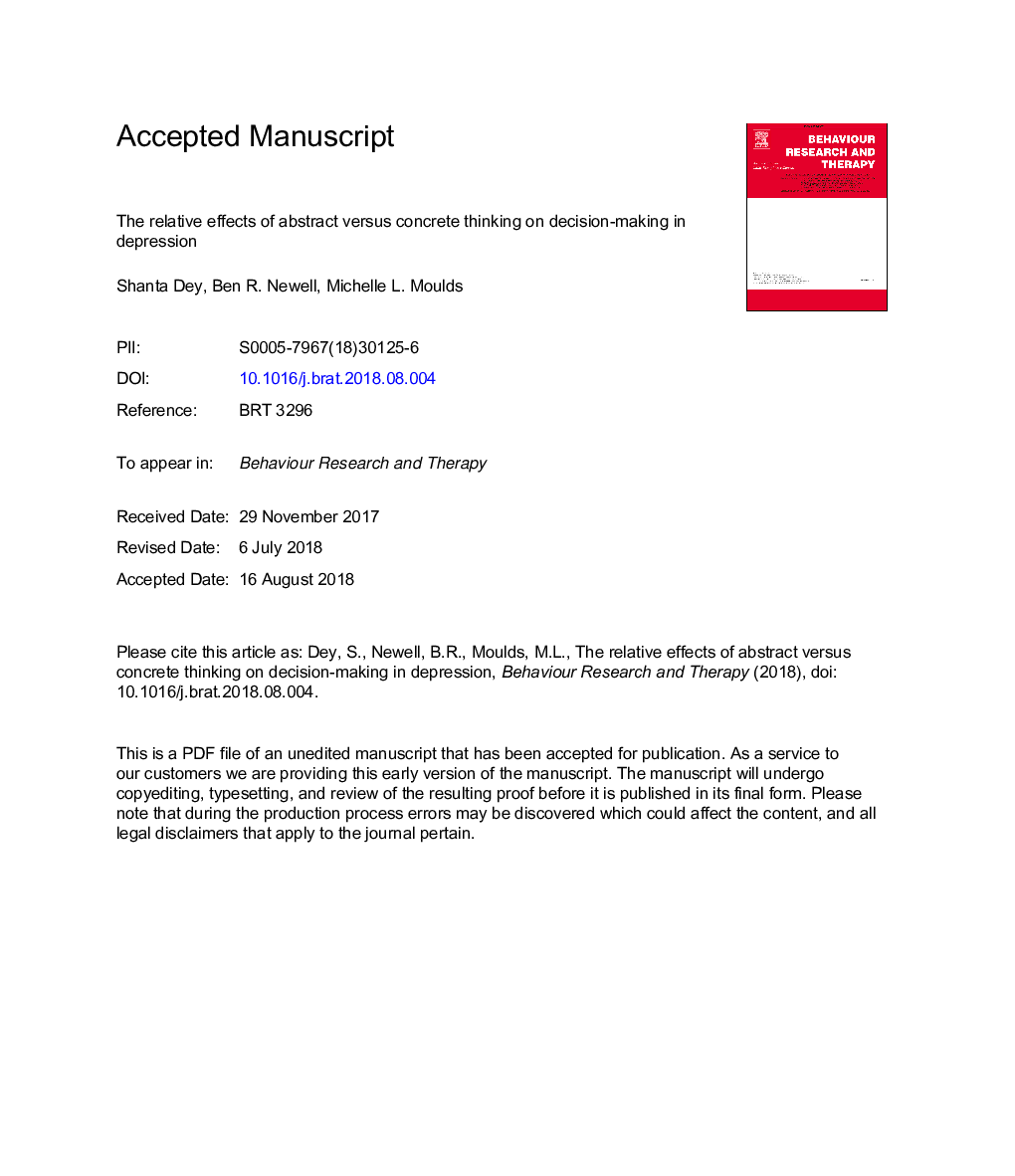| Article ID | Journal | Published Year | Pages | File Type |
|---|---|---|---|---|
| 8947852 | Behaviour Research and Therapy | 2018 | 45 Pages |
Abstract
In two studies we tested the hypothesis that abstract thinking is linked to decision-making problems in depression. In Study 1, we compared the extent to which high dysphoric (nâ¯=â¯24) and low dysphoric (nâ¯=â¯26) individuals engaged in abstract thinking while completing a decision-making task. As predicted, high dysphoric participants demonstrated more abstract thinking and worse outcomes on decision-making measures indexed before and after they made decisions about both personal and hypothetical scenarios. In Study 2, we tested the prediction that abstract thinking leads to worse decision-making outcomes relative to concrete thinking. Participants were randomly allocated to engage in either abstract (nâ¯=â¯43) or concrete (nâ¯=â¯44) thinking, and then given an online writing task and encouraged to complete it as early as possible within a 9-day timeframe. Depressive symptoms were associated with longer task completion time in the abstract condition; no such relationship was observed in the concrete condition. Our findings have the potential to inform the clinical management of depression by demonstrating that abstract thinking could contribute to decision-making difficulties in depression, and raise the possibility that facilitating the use of concrete thinking may reduce these difficulties.
Related Topics
Health Sciences
Medicine and Dentistry
Psychiatry and Mental Health
Authors
Shanta Dey, Ben R. Newell, Michelle L. Moulds,
